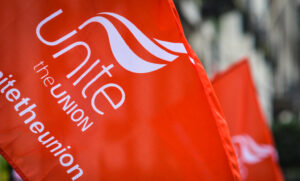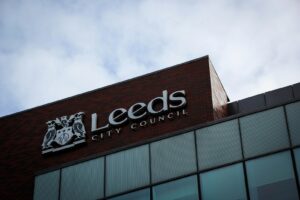Both often find themselves in the public eye, both are clearly strong minded and both are colourful characters, Batmanghelidjh for her clothes and Bird for his language! But what in my view sets them apart is the extent to which enterprise has featured in their success, or failure. And that, as the accusations and rumours fly in the aftermath of Batmanghelidjh’s charity The Kids Company, is where I want to focus.
Of course the demise of The Kids Company is tragic for those reliant on its services. It’s also pretty tough on those who worked there. Batmanghelidjh’s determination to put her services users first was laudable and in no way atypical of the sector. But what about her customers; the many organisations that gave money in return for something they could consider a sound return on their investment?
The published accounts for The Kids Company confirms that as reported, less than a third of grant income came from central government. The balance came from donors ranging from Amway to Vodaphone. They’ve not contributed to the recent media debate and one assumes they were happy with the way their donations were used.
However, stop almost anyone in the street and ask them to comment and they’ll simply say, Batmanghelidjh helped disadvantaged youngsters. They’re not sure how or why, just that this was clearly good work needed because others had said so.
Contrast this with public understanding of the work of Bird’s Big Issue. Ask those same people in the street about what The Big Issue does and they know. ‘It’s a magazine,’ they say, ‘sold by homeless people.’ You don’t have to dig very deep to discover most know that the vendors buy the magazines then re-sell them at a higher price. This gives them income, re-builds their confidence and provides purpose at a time in the lives, when all hope has been lost.
Clearly not every charity can trade on the street as visibly as The Big Issue, but all surely have to make very clear the value they deliver to those who pay them? Yes, you have to protect those vulnerable people you set out to help, but even organisations like Oxfam manage to connect donor with cause in unique and interesting ways. I bought my mother- in-law a goat for Christmas last year. Or rather my £25 donation to Oxfam delivered her a card with goat picture and someone who really needed one, the genuine article – or so I assume, but happy with my return on investment (a happy mother-in-law), I ask no further.
And so it is with The Big Issue. I buy a copy because it’s an interesting read and I know that in doing so I’m helping someone I’ve actually met to better their lot. I’m familiar with the John Bird mantra, that Big issue offers a ‘hand up, not a hand out,’ and that resonates with me as an entrepreneur. Advertisers too can measure their return and what Batmanghelidjh’s annual report calls ‘major donors’, Bird’s Big Issue Foundation trustees’ report describes as support from ‘valuable partners’.
These are just words I know, but they hint at each organisation’s attitude to those who fund it. Public opinion is fickle, often unfair and easily swayed. I think we all have to make doubly sure we are very clearly delivering value for money to those who fund us, be they on street corners or in the corridors of power!
















I’m not sure of the point of this article. There’s been the recent upset about charities bombarding the vulnerable with requests; one only has to see who gets stopped in the street by the chuggers to see that those with time on their hands, possibly lonely, possibly least likely to have resources to give away, are the most likely to agree to stop. What should those charities be giving to their ‘customers’?
I too buy the Big Issue, and have since it was launched. It’s an admirable enterprise – but still I see vendors reappear year in, year out. Have they been helped off the streets? How do the papers’ advertisers calculate their return?
Part of the aim of Kids Company must have been to prevent those kids becoming Big Issue sellers. If you merely deflect people from disaster, before they fall, how can that be counted? Has Robert Ashton asked Vodaphone and the rest if they felt their money was being well-used? (Leave aside the argument that if all these companies paid their taxes and gave up paying bungs to the Tory party some of the work of Kids Company might not be necessary.)
I grieve for the kids of Kids Company, thrown onto the impoverished resources of their local councils. Those social services departments can’t beg for funds from the corporations. I grieve too for Camila Batmangelidjh, whose life’s work has been casually destroyed – by a media and a government, parts of which at least would rather not have anyone pointing out their manifest injustices. Robert Ashton contributes nothing to ameliorate this.